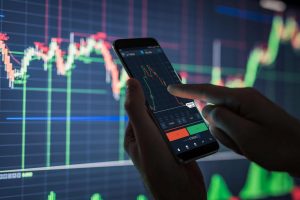“Retail traders" was a phrase that became popular in 2020, as the pandemic saw a trend of non-traditional traders take interest in investing while stuck at home in isolation. This was made possible due to the rise of trading apps such as Robinhood and Webull, making trading simpler and more accessible. While Wall Street tried to make sense of this new, less experienced or educated cohort, the retail traders were largely dismissed, perceived as a non-threat, until last week when the Reddit-organized GameStop short-squeeze was executed.
When the Reddit community r/wallstreetbets identified and highlighted the most shorted stock on Wall Street, it set out an agenda to put pressure on hedge funds that were overly shorting stock of companies such as Bed Bath & Beyond, GameStop, and BlackBerry. As soon as the community started with GameStop, Wall Street had no choice but take note. The biggest shorter of the stock was Citadel, the hedge fund which immediately fell into debt.
Online investment platforms rapidly scaled the charts, and Robinhood became the #1 App for iPhones with other trading apps joining it in the top 10 list for the first time, beating out popular social media apps. The story instantly went viral and memes are still circulating for millennial investors today as big publications and veteran investors continue to dissect the story across the web.
While hedge funds quickly fought back and GameStop prices fell, there is no doubt that Wall Street is finally learning the effects of trading apps and the retail traders they breed. Robinhood was quick to limit and then ban trades of GameStop stock, followed by all the other tickers tapped to be short-squeezed ($AAL, $AMC, $BB, $BBBY, $CTRM, $NOK, and more). Today, the company is facing an increasing pile of cases and class-action lawsuits levied at it for failing its promise to ‘democratize finance for all’—in a move that has been read by users as favoring the hedge funds.
In an interview with CNBC, Dan Lane, senior analyst at Freetrade stated “This is a wakeup call for Wall Street and the Square Mile that retail investor flows are meaningful and need to be taken seriously”. He elaborated to say, “If nothing else, the most recent episode should register the assertion from new retail investors that they want to be part of building their cash piles rather than handing the job off to someone else.”
Although retail traders may lack the experience of hedge funds and veteran Wall Street traders, the event proved that there is a power in an organized action against the market, and that retail traders have the ability to shape the movements of stock as well. Whether or not Robinhood will reclaim its trust and popularity from users, one thing’s for sure, the accessibility of trading today has shaped an entirely new cohort of traders influencing the market that can no longer be ignored.
























